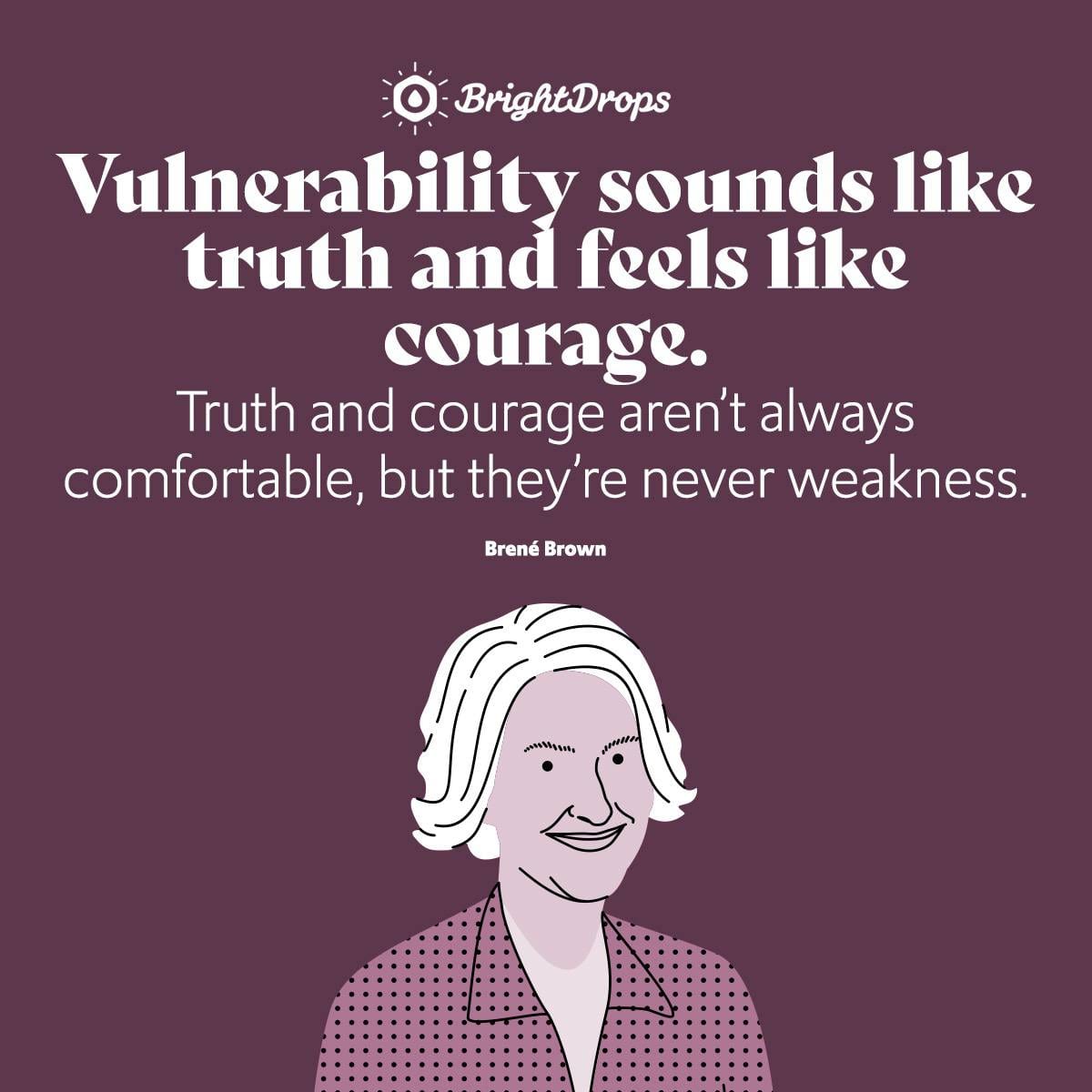Introduction
In a world that often values strength, resilience, and perfection, vulnerability might seem like a weakness. However, embracing vulnerability and openly sharing personal struggles can lead to deeper human connections, emotional growth, and psychological well-being. When we allow ourselves to be seen for who we truly are—imperfections and all—we invite authenticity into our relationships, fostering trust and understanding.
Read More- Ways to Improve Mental Health
The Psychological Benefits of Vulnerability
Vulnerability is not about oversharing or seeking pity; rather, it is about acknowledging our emotions, fears, and experiences in an honest way. According to Dr. Brené Brown, a renowned researcher on vulnerability, “Vulnerability sounds like truth and feels like courage. Truth and courage aren’t always comfortable, but they are never weakness” (Brown, 2012). When we open up, we give others permission to do the same, creating an environment of emotional safety.

Research in psychology suggests that vulnerability is crucial for mental well-being. Sharing our struggles can reduce stress, anxiety, and feelings of isolation (Tugade, Fredrickson, & Barrett, 2004). When we speak about our experiences, we externalize our fears, making them more manageable. Additionally, opening up fosters empathy, as others often find resonance in our stories, reassuring them that they are not alone in their struggles.
Deepening Connections Through Shared Experiences
Genuine relationships are built on trust, and trust is strengthened through vulnerability. When individuals share their fears, setbacks, or emotional pain, they invite others to see them as they truly are. This authenticity creates a deeper bond, as people feel valued not just for their achievements but for their humanity.
Consider the example of Michelle Obama, who openly shared her struggles with self-doubt and imposter syndrome in her memoir Becoming (Obama, 2018). By admitting that even she had moments of insecurity, she connected with millions who saw their own fears reflected in her words. Similarly, actor Dwayne “The Rock” Johnson has spoken about his battles with depression, encouraging men in particular to break the stigma around mental health and seek support (Johnson, 2018).
The Ripple Effect of Authenticity
When one person embraces vulnerability, it creates a ripple effect. Their courage inspires others to open up, creating a culture of emotional honesty. This is particularly powerful in leadership, friendships, and romantic relationships. Leaders who acknowledge their struggles earn the respect of their teams, as their honesty fosters a sense of unity and approachability (Goleman, Boyatzis, & McKee, 2013). In friendships, shared vulnerabilities strengthen trust, while in romantic relationships, they build a foundation of deeper intimacy.

How to Embrace Vulnerability in Your Life
If you’re unsure how to begin embracing vulnerability, start small-
- Acknowledge your feelings – Accept that it’s okay to experience fear, sadness, or uncertainty. According to psychologist Carl Rogers (1961), self-acceptance is a crucial part of personal growth and emotional well-being. Recognizing and validating your own emotions helps to create a sense of self-awareness and emotional intelligence.
- Choose safe spaces – Share with people who have earned your trust and who reciprocate honesty. As Dr. John Gottman (1999) emphasizes, relationships thrive on trust and responsiveness. A supportive environment encourages openness without fear of judgment or rejection.
- Practice self-compassion – Recognize that your struggles don’t define your worth. Dr. Kristin Neff (2011) explains that self-compassion involves treating yourself with the same kindness that you would offer a close friend. Being gentle with yourself can help ease fear and anxiety around vulnerability.
- Listen actively – When others share their struggles, respond with empathy and understanding. Active listening, as highlighted by psychologist Carl Rogers (1951), involves reflecting back emotions and showing genuine interest, which fosters deeper and more meaningful relationships.
- Reframe vulnerability as strength – View openness as an act of courage rather than weakness. Research by Dr. Brené Brown (2010) indicates that vulnerability is closely linked to courage, creativity, and meaningful human connections. When we see it as a strength rather than a liability, we are more likely to embrace it.
Conclusion
In a society that often prioritizes appearing strong, embracing vulnerability is a radical act of courage. It is through our struggles that we connect with others on a profound level, forging bonds that are meaningful and authentic. As Brené Brown aptly puts it, “Owning our story and loving ourselves through that process is the bravest thing that we will ever do” (Brown, 2010). By sharing our experiences, we not only heal ourselves but also create spaces where others feel seen, heard, and valued.
So, the next time you hesitate to be vulnerable, remember: your story has the power to inspire, connect, and transform both you and those around you.
References
Brown, B. (2010). The Gifts of Imperfection. Hazelden Publishing.
Brown, B. (2012). Daring Greatly. Gotham Books.
Goleman, D., Boyatzis, R., & McKee, A. (2013). Primal Leadership: Unleashing the Power of Emotional Intelligence. Harvard Business Review Press.
Gottman, J. (1999). The Seven Principles for Making Marriage Work. Crown Publishing.
Johnson, D. (2018). Personal Interview with The Express Tribune.
Neff, K. (2011). Self-Compassion: The Proven Power of Being Kind to Yourself. HarperCollins.
Obama, M. (2018). Becoming. Crown Publishing.
Rogers, C. (1961). On Becoming a Person. Houghton Mifflin.
Tugade, M. M., Fredrickson, B. L., & Barrett, L. F. (2004). Psychological resilience and positive emotional granularity: Examining the benefits of positive emotions on coping and health. Journal of Personality, 72(6), 1161-1190.
Subscribe to PsychUniverse
Get the latest updates and insights.
Join 3,040 other subscribers!
Niwlikar, B. A. (2025, March 29). The Power of Vulnerability and 5 Powerful Ways to Embrace It. PsychUniverse. https://psychuniverse.com/the-power-of-vulnerability/



